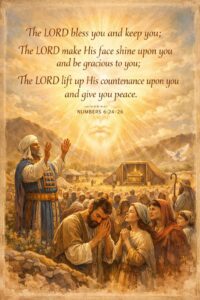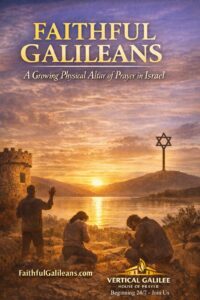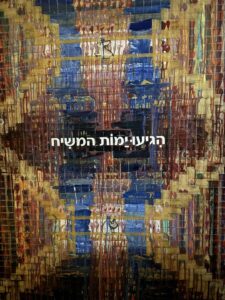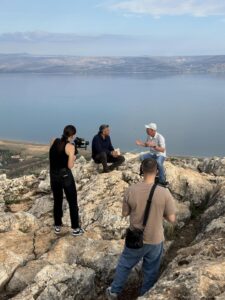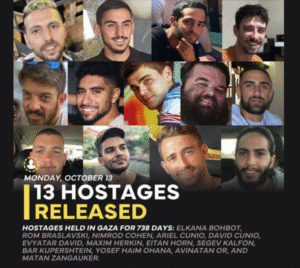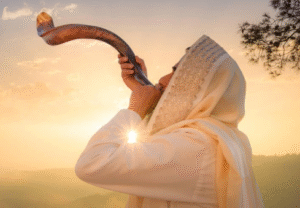
Sukkot: A Season of Divine Dwelling and Provision
We are in the season of Sukkot, or the Feast of Tabernacles, we are reminded of the powerful truths this time holds, both in reflecting on Elohim’s provision and in recognizing His desire to dwell with us. This season, which commemorates the journey of the Israelites through the wilderness, where they dwelt in temporary shelters (Succot), is more than just a historical reminder—it is a prophetic call for all nations to come together and worship the King.
In Leviticus 23:33-43, Elohim commands the children of Israel to observe Sukkot as a holy time of celebration and remembrance. The Hebrew text of these verses is rich in meaning, emphasizing the importance of this feast as a time for dwelling with Elohim and recognizing His provision in our lives.
Leviticus 23:33-43 (Hebrew):
“וַיְדַבֵּר יְהוָה אֶל־מֹשֶׁה לֵּאמֹר׃
דַּבֵּר אֶל־בְּנֵי יִשְׂרָאֵל לֵאמֹר בַּחֲמִשָּׁה עָשָׂר יוֹם לַחֹדֶשׁ הַשְּׁבִיעִי הַזֶּה חַג־הַסֻּכּוֹת שִׁבְעַת יָמִים לַיהוָה׃
בַּיּוֹם הָרִאשׁוֹן מִקְרָא־קֹדֶשׁ כָּל־מְלֶאכֶת עֲבֹדָה לֹא תַעֲשׂוּ׃
שִׁבְעַת יָמִים תַּקְרִיבוּ אִשֶּׁה לַיהוָה בַּיּוֹם הַשְּׁמִינִי מִקְרָא־קֹדֶשׁ יִהְיֶה לָכֶם וְהִקְרַבְתֶּם אִשֶּׁה לַיהוָה עֲצֶרֶת הִוא כָּל־מְלֶאכֶת עֲבֹדָה לֹא תַעֲשׂוּ׃”
Leviticus 23:33-43 (English): “And the LORD spoke to Moses, saying, ‘Speak to the children of Israel, saying, The fifteenth day of this seventh month shall be the Feast of Tabernacles for seven days unto the LORD. On the first day shall be a holy convocation: you shall do no servile work therein. Seven days you shall offer an offering made by fire to the LORD: on the eighth day shall be a holy convocation to you; and you shall offer an offering made by fire to the LORD: it is a solemn assembly; and you shall do no servile work therein.’”
The Hebrew word used here for “convocation” is mikra kodesh (מִקְרָא־קֹדֶשׁ), meaning a “holy assembly” or gathering. Sukkot is a time set apart, a time when we cease from our ordinary labor and come together in worship and reflection.
Sukkot, the Hebrew word for booths or temporary dwellings, is a physical reminder of the Israelites’ dependence on Elohim during their 40 years in the wilderness. But it also points forward to a time when all nations will come to Jerusalem to worship the King. In Zechariah 14:16-18, the prophet speaks of the future fulfillment of Sukkot when all nations will gather to worship Elohim during this holy feast:
Zechariah 14:16-18 (Hebrew):
“וְהָיָה כָּל־הַנּוֹתָר מִכֹּל הַגּוֹיִם הַבָּאִים עַל־יְרוּשָׁלִַם וְעָלוּ מִדֵּי שָׁנָה בְּשָׁנָה לְהִשְׁתַּחֲוֹת לְמֶלֶךְ יְהוָה צְבָאוֹת וְלָחֹג אֶת־חַג הַסֻּכּוֹת׃
וְהָיָה אֲשֶׁר לֹא־יַעֲלֶה מֵאֵת מִשְׁפְּחוֹת הָאָרֶץ אֶל־יְרוּשָׁלִַם לְהִשְׁתַּחֲוֹת לְמֶלֶךְ יְהוָה צְבָאוֹת וְלֹא עֲלֵיהֶם יִהְיֶה הַגָּשֶׁם׃”
Zechariah 14:16-18 (English): “Then everyone who survives of all the nations that have come against Jerusalem shall go up year after year to worship the King, the Lord of hosts, and to keep the Feast of Tabernacles. And if any of the families of the earth do not go up to Jerusalem to worship the King, the Lord of hosts, there will be no rain on them.”
The Hebrew word for “rain” here is geshem (גָּשֶׁם), which symbolizes blessing and provision. Rain is a sign of Elohim’s favor, and withholding rain signifies the withholding of blessings. Sukkot, therefore, is not only a time of remembrance but also a time of anticipation—a reminder that Elohim’s kingdom is for all nations and that His blessings will flow to those who honor Him.
Yeshua Himself celebrated Sukkot, as recorded in John 7. On the last day of the festival, Hoshana Rabbah, Yeshua stood up and made a proclamation that is deeply tied to the themes of Sukkot:
John 7:37-38 (English): “On the last day of the feast, the great day, Yeshua stood up and cried out, ‘If anyone thirsts, let him come to me and drink. Whoever believes in me, as the Scripture has said, “Out of his heart will flow rivers of living water.”
Here, Yeshua identifies Himself as the source of living water, fulfilling the water-drawing ceremonies that were part of the Sukkot celebrations. The water libation during Sukkot was a prayer for rain, for Elohim’s provision for the coming year’s harvest. Yeshua’s declaration that He is the living water points to the deeper spiritual reality—He is the ultimate source of life and sustenance.
During this season of Sukkot, we are invited to draw near to Yeshua, to find rest and refreshment in Him.
In Matthew 11:28-29, Yeshua calls out to all who are weary:
In Matthew 11:28-29, Yeshua calls out to all who are weary:
Matthew 11:28-29 (Hebrew transliteration and English):
“Bo’u elai, kol ha’amelim v’ha’mtunim b’masa, v’ani anich lachem. K’chu et olchi aleichem v’l’mdu mimeni, ki anav v’shfal ruach anochi, v’timtze’u nachat l’nafshoteichem.”
“Bo’u elai, kol ha’amelim v’ha’mtunim b’masa, v’ani anich lachem. K’chu et olchi aleichem v’l’mdu mimeni, ki anav v’shfal ruach anochi, v’timtze’u nachat l’nafshoteichem.”
“Come to me, all who labor and are heavy laden, and I will give you rest. Take my yoke upon you, and learn from me, for I am gentle and lowly in heart, and you will find rest for your souls.”
This powerful invitation from Yeshua reflects the heart of Sukkot—dwelling in peace and trust under Elohim’s protection.
The Hebrew word for “rest” in this passage is nachat (נַחַת), which conveys a deep sense of relief and tranquility. Yeshua offers us this nachat as we abide in Him.
The Hebrew word for “rest” in this passage is nachat (נַחַת), which conveys a deep sense of relief and tranquility. Yeshua offers us this nachat as we abide in Him.
We see this theme of rest and trust echoed in Isaiah 30:15, where the prophet declares:
Isaiah 30:15 (Hebrew):
“כִּי כֹה אָמַר אֲדֹנָי יְהוִה קְדוֹשׁ יִשְׂרָאֵל בְּשׁוּבָה וָנַחַת תִּוָּשֵׁעוּן בְּהַשְׁקֵט וּבְבִטְחָה תִּהְיֶה גְּבוּרַתְכֶם וְלֹא אֲבִיתֶם׃”
Isaiah 30:15 (English): “For thus said the Lord Elohim, the Holy One of Israel, ‘In returning and rest you shall be saved; in quietness and in trust shall be your strength.’ But you were unwilling.”
The Hebrew word for “rest” here is nachat (נַחַת), the same word Yeshua used in His invitation to find rest. Additionally, the word for “quietness” is sheket (שֶׁקֶט), and for “trust” is bitachon (בִּטָּחוֹן).
These words carry profound meanings, emphasizing that our strength (gevurah, גְּבוּרָה) comes not from our own efforts, but from our surrender to Elohim’s guidance and our trust in His provision.
These words carry profound meanings, emphasizing that our strength (gevurah, גְּבוּרָה) comes not from our own efforts, but from our surrender to Elohim’s guidance and our trust in His provision.
This message is particularly relevant during the Feast of Tabernacles.
As we dwell in the Succah, a temporary shelter that symbolizes both vulnerability and divine protection, we are reminded that Elohim Himself is our ultimate shelter. He is our refuge in times of trouble, just as He was for the Israelites in the wilderness.
As we dwell in the Succah, a temporary shelter that symbolizes both vulnerability and divine protection, we are reminded that Elohim Himself is our ultimate shelter. He is our refuge in times of trouble, just as He was for the Israelites in the wilderness.
Psalm 91 encapsulates this theme of finding refuge in Elohim. It is a Psalm of protection and trust, often recited during times of danger or uncertainty. The imagery of the “shadow of the Almighty” and the promise of deliverance speaks to the deeper spiritual truths that Sukkot embodies.
Psalm 91:1-2 (Hebrew):
“יֹשֵׁב בְּסֵתֶר עֶלְיוֹן, בְּצֵל שַׁדַּי יִתְלוֹנָן.
אֹמַר לַיהוָה, מַחְסִי וּמְצוּדָתִי, אֱלֹהַי אֶבְטַח בּוֹ.”
Psalm 91:1-2 (English):
“He who dwells in the shelter of the Most High will abide in the shadow of the Almighty. I will say to the LORD, ‘My refuge and my fortress, my Elohim, in whom I trust.”
“He who dwells in the shelter of the Most High will abide in the shadow of the Almighty. I will say to the LORD, ‘My refuge and my fortress, my Elohim, in whom I trust.”
The Hebrew word for “shelter” here is seter (סֵתֶר), meaning a secret or hidden place, while “shadow” is tzel (צֵל), conveying the image of being under divine protection. The word machsi (מַחְסִי), translated as “refuge,” emphasizes that Elohim is our safe haven, our place of protection from the storms of life.
This concept of divine refuge is closely tied to the imagery of the Succah itself. Just as the Israelites dwelt in temporary shelters during their wilderness journey, we too dwell in the spiritual shelter of Elohim’s presence. He is our Succah, our dwelling place. This connection is further highlighted in Isaiah 4:5-6, where the prophet speaks of a time when Elohim will establish His presence over Zion like a Succah, providing protection and covering:
Isaiah 4:5-6 (Hebrew):
“וּבָרָא יְהוָה עַל כָּל מְכוֹן הַר צִיּוֹן וְעַל מִקְרָאֶהָ עָנָן יוֹמָם, וְעָשָׁן וְנֹגַהּ אֵשׁ לֶהָבָה לָיְלָה, כִּי עַל כָּל כָּבוֹד חֻפָּה׃
וְסֻכָּה תִּהְיֶה לְצֵל יוֹמָם מֵחֹרֶב, וּלְמַחְסֶה וּלְמִסְתּוֹר מִזֶּרֶם וּמִמָּטָר.”
Isaiah 4:5-6 (English):
“Then the LORD will create over the whole site of Mount Zion and over her assemblies a cloud by day, and smoke and the shining of a flaming fire by night; for over all the glory there will be a canopy. There will be a booth for shade by day from the heat, and for a refuge and a shelter from the storm and rain.”
The word Succah (סֻכָּה) is used again here, this time in a prophetic sense, pointing to a future time when Elohim’s presence will be the ultimate shelter for His people. This is the deeper spiritual meaning of Sukkot—that we are not only commemorating the past but looking forward to a future time when Elohim will dwell with His people in a permanent and glorious way.
Revelation 21:3 echoes this promise of divine dwelling:
Revelation 21:3 (Hebrew transliteration and English):
“V’ishma kol gadol min hashamayim omer, hineh mishkan Elohim im bnei adam, v’shachen itam, v’hemah yihiyu le’am, v’Elohim yihyeh imahem.”
“V’ishma kol gadol min hashamayim omer, hineh mishkan Elohim im bnei adam, v’shachen itam, v’hemah yihiyu le’am, v’Elohim yihyeh imahem.”
“And I heard a loud voice from the throne saying, ‘Behold, the dwelling place of Elohim is with man. He will dwell with them, and they will be His people, and Elohim Himself will be with them as their Elohim.”
The word for “dwelling place” in this passage is mishkan (מִשְׁכָּן), which is also the word used for the Tabernacle, the portable sanctuary where Elohim’s presence dwelled among the Israelites. This passage in Revelation points to the ultimate fulfillment of Sukkot, when Elohim’s presence will dwell permanently with His people.
This theme of Elohim dwelling with His people is also seen in Genesis 3:8, where Elohim walked in the garden with Adam and Eve. In the cool of the day, Elohim sought fellowship with humanity, desiring to dwell with them. Although this relationship was fractured by sin, Elohim’s plan has always been to restore that fellowship. This is the heart of Sukkot—Elohim desires to “tabernacle” with us, to dwell among us as our protector and provider.
Genesis 3:8 (Hebrew):
“וַיִּשְׁמְעוּ אֶת־קוֹל יְהוָה אֱלֹהִים מִתְהַלֵּךְ בַּגָּן לְרוּחַ הַיּוֹם וַיִּתְחַבֵּא הָאָדָם וְאִשְׁתּוֹ מִפְּנֵי יְהוָה אֱלֹהִים בְּתוֹךְ עֵץ הַגָּן׃”
Genesis 3:8 (English): “And they heard the sound of the LORD Elohim walking in the garden in the cool of the day, and the man and his wife hid themselves from the presence of the LORD Elohim among the trees of the garden.”
Elohim’s desire to dwell with us has not changed.
Yeshua reiterates this in John 14:23: John 14:23 (Hebrew transliteration and English):
Yeshua reiterates this in John 14:23: John 14:23 (Hebrew transliteration and English):
“V’yan Yeshua vayomer elav, im ish ye’ehov oti, et d’varai yishmor, v’Avi ye’ehav oto, v’elav navo, v’naaseh mishkan ito.”
“Yeshua answered him, ‘If anyone loves me, he will keep my word, and my Father will love him, and we will come to him and make our home with him.”
The Hebrew word for “home” here is mishkan (מִשְׁכָּן), once again pointing to the Tabernacle, the dwelling place of Elohim. Yeshua is inviting us into a relationship where Elohim makes His home with us, where we abide in His presence. This is the ultimate fulfillment of Sukkot—the realization that Elohim desires to dwell with His people, not just in a physical Succah but in the hearts of those who love and obey Him.
The promise of Elohim’s presence as our reward is also seen in Genesis 15:1, where Elohim speaks to Abram:
Genesis 15:1 (Hebrew):
“אַחַר הַדְּבָרִים הָאֵלֶּה הָיָה דְבַר־יְהוָה אֶל־אַבְרָם בַּמַּחֲזֶה לֵאמֹר אַל־תִּירָא אַבְרָם אָנֹכִי מָגֵן לָךְ שְׂכָרְךָ הַרְבֵּה מְאֹד׃”
Genesis 15:1 (English): “After these things the word of the LORD came to Abram in a vision: ‘Fear not, Abram, I am your shield; your reward shall be very great.’”
The word for “reward” here is sachar (שָׂכָר), which can mean both a payment or a gift. Elohim Himself is our greatest reward. He is our shield (magen, מָגֵן), our protector, and our provider.
This theme of reward is also echoed in 2 Corinthians 4:17, where the apostle Paul speaks of the future glory that awaits those who endure hardships in this life. The Hebrew translation captures the richness of the original sentiment:
2 Corinthians 4:17 (Hebrew transliteration and English):
“Ki tzarah kallah shehi b’zman mu’at, po’aleh lanu k’vod olam b’mishkal she’ein lehashvot.”
“For this light momentary affliction is preparing for us an eternal weight of glory beyond all comparison.”
The Hebrew word kavod (כָּבוֹד) for “glory” is significant, as it conveys not only honor but also the weightiness of Elohim’s presence. Paul reminds us that our momentary struggles are producing an eternal kavod—the very presence and majesty of Elohim that will be revealed fully when He tabernacles with us forever.
During Sukkot, we are reminded that the light afflictions of this life, both physical and spiritual, are temporary. Just as the Israelites journeyed through the wilderness in temporary shelters, so too do we journey through this life knowing that it is not our permanent home. Sukkot points us toward the eternal home Elohim is preparing for us—a home where we will dwell with Him forever, surrounded by His glory and peace.
This future hope is beautifully described in Revelation 21:10-22, where the apostle John is given a vision of the New Jerusalem:
Revelation 21:10-22 (Hebrew transliteration and English):
“Vayisa’eni b’ruach el har gadol v’gavo’ah, v’yareh li et ir hakodesh Yerushalayim, yoredet min hashamayim me’et Elohim, Ulah kavod Elohim; v’orah hadomah l’even y’karah, k’even jaspeh barah k’crystal.”
“And he carried me away in the Spirit to a great, high mountain, and showed me the holy city Jerusalem coming down out of heaven from Elohim, having the glory of Elohim, its radiance like a most rare jewel, like jasper, clear as crystal.”
The New Jerusalem is the ultimate fulfillment of Sukkot—a city where Elohim’s presence dwells with His people forever. In this city, there is no need for a temple because Elohim Himself, along with the Lamb (Yeshua), will be the temple.
As we read:
As we read:
Revelation 21:22 (Hebrew transliteration and English):
“V’lo ra’iti ba heichal, ki Adonai Elohim tzva’ot v’haseh heichalah.”
“And I saw no temple in the city, for the Lord Elohim Almighty and the Lamb are its temple.”
The Hebrew word heichal (הֵיכָל) refers to a temple or palace, a dwelling place for divine presence. This passage shows that in the New Jerusalem, the very presence of Elohim will fill the city, and we will dwell with Him in perfect fellowship forever.
Sukkot is a time when we are invited to experience a foretaste of this eternal dwelling. As we build and dwell in our physical Succot, we are reminded of the temporary nature of this life and the eternal home that awaits us. But more than that, Sukkot is a time to recognize that Elohim desires to dwell with us now, in our hearts and lives, just as He walked with Adam and Eve in the Garden of Eden.
Genesis 3:8-9 tells us:
Genesis 3:8-9 (Hebrew):
“וַיִּשְׁמְעוּ אֶת־קוֹל יְהוָה אֱלֹהִים מִתְהַלֵּךְ בַּגָּן לְרוּחַ הַיּוֹם וַיִּתְחַבֵּא הָאָדָם וְאִשְׁתּוֹ מִפְּנֵי יְהוָה אֱלֹהִים בְּתוֹךְ עֵץ הַגָּן׃”
Genesis 3:8-9 (English):
“And they heard the sound of the LORD Elohim walking in the garden in the cool of the day, and the man and his wife hid themselves from the presence of the LORD Elohim among the trees of the garden.”
Elohim has always desired to dwell with His people, to walk with them and have fellowship with them. This is the heart of Sukkot—a time to remember that Elohim is not distant or removed, but He is near, walking with us in every season of life, both in times of joy and in times of sorrow.
As we celebrate Sukkot, we also recognize that this is a time of joy and thanksgiving. The Torah commands us to rejoice during this feast:
Leviticus 23:40 (Hebrew):
“וּלְקַחְתֶּם לָכֶם בַּיּוֹם הָרִאשׁוֹן פְּרִי עֵץ הָדָר כַּפֹּת תְּמָרִים וַעֲנַף עֵץ עָבֹת וְעַרְבֵי נָחַל וּשְׂמַחְתֶּם לִפְנֵי יְהוָה אֱלֹהֵיכֶם שִׁבְעַת יָמִים׃”
Leviticus 23:40 (English):
“And you shall take on the first day the fruit of splendid trees, branches of palm trees, and boughs of leafy trees and willows of the brook, and you shall rejoice before the LORD your Elohim seven days.”
The Hebrew word for “rejoice” here is simachtem (שְׂמַחְתֶּם), which comes from the root simchah (שִׂמְחָה), meaning joy or gladness. Sukkot is a time of simchah, a time to celebrate Elohim’s provision, protection, and presence.
Even in the midst of trials, we are called to rejoice. As Paul reminds us in Romans 12:15, we are to “rejoice with those who rejoice and weep with those who weep.” Sukkot provides a unique opportunity to practice this balance of joy and empathy. Perhaps a friend mourns in the morning and another celebrates a wedding in the evening.
In Elohim’s timing, both joy and sorrow are part of the human experience, and we are called to support one another in both.
In conclusion, Sukkot is a time of deep reflection, prophetic anticipation, and joyful celebration. It points us back to the wilderness, where Elohim sustained His people and forward to the time when all nations will gather to worship Him in the New Jerusalem. As we build and dwell in our Succot, let us remember that Elohim is our ultimate shelter, our protector, and our provider. He is our magen (מָגֵן), our shield, and He promises to dwell with us forever.
May we find rest in His presence, trust in His protection, and joy in His provision during this holy season.
Chag Sukkot Sameach—may your Feast of Tabernacles be filled with the peace, joy, and presence of Elohim.
SEEK HIS FACE CONTINUALLY
SEEK HIS FACE CONTINUALLY Light, Grace, Presence, and the Face of Elohim The heart of…
Fasting, the Heart, and the Return to Elohim
Fasting, the Heart, and the Return to Elohim A Hebraic understanding of Consecration, Repentance, and…
Ein yi’ush ba-olam klal
Ein yi’ush ba-olam klal אין ייאוש בעולם כלל“There is no despair in the world at…
FROM PROVISION TO PRESENCE
FROM PROVISION TO PRESENCE THE WAY OF THE MESSIAH, THE DWELLING OF ELOHIM, AND THE…
The Circle of Authority, the River of Life, and the Kingdom of the Messiah
The Circle of Authority, the River of Life, and the Kingdom of the Messiah Encountering…
Hanukkah Light, Sonship, and Covenant Faithfulness
Hanukkah Light, Sonship, and Covenant Faithfulness Why the Sons of Elohim Must Not Shrink Back**…
Hanukkah: Shining the Light on Our Thoughts
Hanukkah: Shining the Light on Our Thoughts How Thoughts Enter Our Lives, Shape Our Hearts,…
The Lamb, Mount Zion, and the Mystery of the Song
The Lamb, Mount Zion, and the Mystery of the Song The Lamb, Mount Zion, and…
Awake, O Sleeper — The Five-Alarm Fire of Awakening
Awake, O Sleeper — The Five-Alarm Fire of Awakening May we hear Elohim like Shmuel…
Anointed to Heal, Restore, and Rebuild: A Prophetic Call to the Kehilah
Anointed to Heal, Restore, and Rebuild: A Prophetic Call to the Kehilah The Anointing of…
What is called the "Gaza War"
What is called the “Gaza War” In which Israel faced attacks on 7 different military…
Why Do the Nations Rage?
Why Do the Nations Rage? (Psalm 2, Prophetic Scriptures, and Our Hope in Yeshua the…

